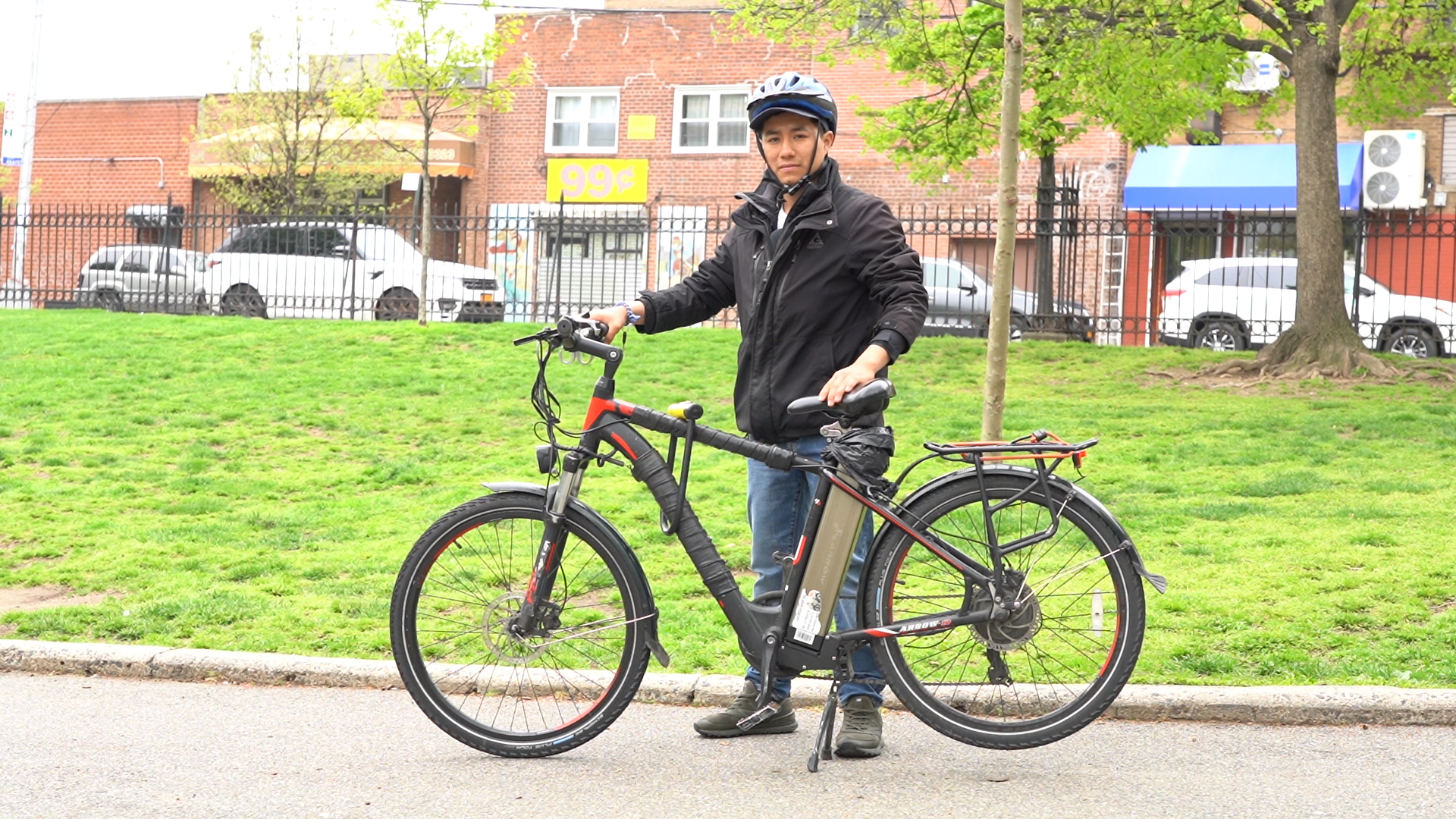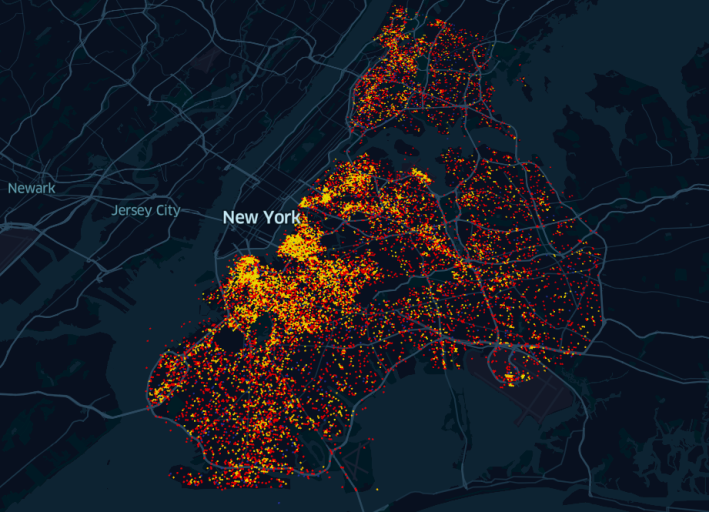The City Council voted on Thursday to legalize e-bikes and authorize an e-scooter pilot program — ending a years-long struggle for food-delivery workers who were subject to constant police harassment simply for doing their jobs on the bikes.
The Council passed a trio of bills on Thursday: one that legalizes the e-bikes that were legalized under state law this year, one legalizing the use of electric scooters, and another allowing for the establishment of an e-scooter-share program.
The city legislation codifies the rules that New York State passed in April as part of the 2020 budget. Those rules are:
- Class 1 (pedal-assist bikes, such as Citi Bike e-bikes, that max out at 20 miles per hour. Such bikes had been legal in New York City already)
- Class 2 (throttle-powered bikes that max out at 20 miles per hour)
- Class 3 e-bikes (throttle-powered bikes that max out at 25 miles per hour) in cities of one million people or more. These are the bikes preferred by delivery workers.
The state also legalized e-scooters, which are capped at 15 miles per hour, for use statewide, although it forbid scooter-share programs from operating in Manhattan. (Pilots of such programs expected to be established in Brooklyn and Queens.) Helmets are required for 16- and 17-year-olds who ride e-scooters or Class 1 and 2 e-bikes, and for anyone who rides a Class 3 e-bike. Earlier in the year, advocates agreed to the Class 3 e-bike helmet requirement because New York City already requires helmets for commercial cyclists, who favor such bikes.
The votes today weren't without some fireworks. Council Member Carlos Menchaca made his opposition to electric scooters and especially to shared-scooter programs known when he told the Transportation Committee that the Council was only voting on the bills "because of the power of venture capitalists." Menchaca also said that the lifespan of an e-scooter is only four to six months, which negates whatever carbon-reduction benefits such vehicles might contribute to the transportation mix. A spokesperson for Lime disputed Menchaca's contention, saying that sturdier hardware and better repair practices now give scooters a lifespan of 18 months.
Scooter companies welcomed the news that the city will establish a pilot program, although the legislation says the city can take until March 2021 to do so.
"New York needs operators who understand the city’s unique needs, and have e-scooters built to perform on all types of streets," said LINK CEO Assaf Biderman. "We’re committed to partnering with the Department of Transport to keep NYC moving."
Phil Jones, the senior director of government relations for Lime, said that, in order to be most effective, the city's upcoming pilot program should place "service zones in denser communities with nearby transit options, as well as ensuring the zones are expansive enough to connect residential and commercial districts. It also should allow "demand to dictate fleet size" and ensure access for lower-income neighborhoods while "capitalizing on ... unprecedented growth of the bike-lane network," Jones said in a statement.
Lime cited a 394-respondent survey that it did with the New York City League of Conservation Voters and Tri-State Transportation Campaign, which showed that 92 percent of those polled said they would use scooters to get around if available, and between 70 and 75 percent of respondents said they would use e-scooters for commutes and short local trips. The company also shared a map that it said shows the areas in the city where people opened the Lime app over the last 6 months as an example of what it called demand for scooters.
Advocates celebrated the passage of the bills, but they said more work is needed in order to iron out wrinkles in the legislation. The Council legislation still hasn't taken care of the state language that prohibits e-bikes of any kind from being ridden on the Hudson River Greenway. That prohibition was added at the behest of fearmongering e-bike opponents with the Hudson River Park Friends, whose executive director once said the bikes were dangerous despite having no evidence to prove it. The city's own numbers, for instance, show that only 9 pedestrians were injured by e-bike riders in 2018.
"We have to get rid of the ludicrous rule that prohibits the use of e-bikes use on the Hudson River Greenway, which even prohibits the sue of Citi Bike e-bikes," said Transportation Alternatives's Deputy Director Marco Conner. "We also have to take care of the sidewalk-parking prohibition rule," Conner said, referring to a state law that prohibits parking a commercial e-bike on the sidewalk for reasons other than immediate pickups or deliveries.
Right now — because of an acute lack of roadway bike parking — delivery riders have no choice but to park their bikes on the sidewalk when waiting at a restaurant between deliveries. There's no quick fix for the dearth of such parking, either: The city does have a program for installing curbside bike corrals, but the process is lengthy and cumbersome. The situation makes the sidewalk-parking prohibition "just another vector for harassment and ticket stings," in the words of Helen Ho, the co-founder of the Biking Public Project.
Council Member Fernando Cabrera said he was open to solving those issues when advocates raised them in early April, and Conner said that the fight isn't over until that happens.
"There's going to need to be continued pressure from advocates, and champions like Council Members Menchaca and Rodriguez. New Yorkers, including Mayor de Blasio even, might be realizing the folly of the past crackdown and that delivery riders have to be treated with respect. There's a need for the city to create affordable and sustainable transportation elements, which was necessary even before we had to start thinking about a pandemic recovery without relying on cars. And that means full legality for e-bikes."







